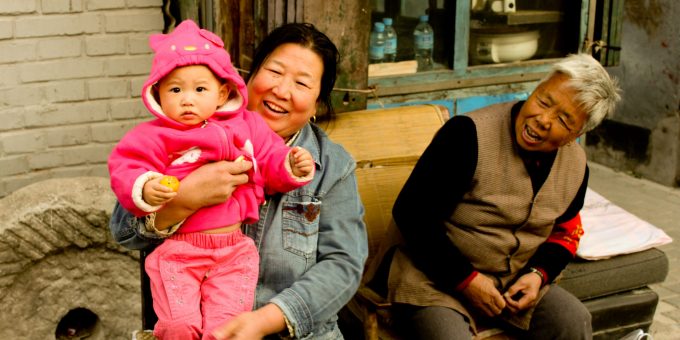
Multigenerational living has its pros and cons for couples' time use. Matt Barber, https://flic.kr/p/7odyTp
More Family, More Time?
Coupled up and cohabitating—with your parents? Over the past 50 years, the number of households with more than one generation has grown dramatically all over the world. A recently published paper in the Chinese Sociological Review investigates how multigenerational living arrangements influence the time allocation of young spouses.
By surveying 9,359 couples, Muzhi Zhou, Man-Yee Kan, and Guangye He illustrate how paid work time, household and adult care time, and childcare time vary for working-age couples who live alone or with young or old parents. The findings indicate that the direction of support varies most prominently based on the age of the co-resident parents. Compared to those who do not live with parents, couples who reside with relatively young parents spend about 2.2 hours less time each week on housework and adult care, while those who reside with relatively old parents report 1.5 hours less paid work time and 0.7 hours more time on housework and adult care. Location matters, too: Rural wives living with elderly parents spend nearly 2 hours more on housework but 1.2 fewer hours on childcare per week.
This study sheds light on the importance of identifying the direction of assistance when studying multigenerational families, as well as the high time cost of adult care, and it adds to our understanding of how such living arrangements affect the lives of adults. In light of research on China’s graying population, as well as the challenges COVID-19 posed to geographically dispersed families, studies on the form and function of extended family households help contextualize trends and explore the psycho-social implications of cohabitation.
